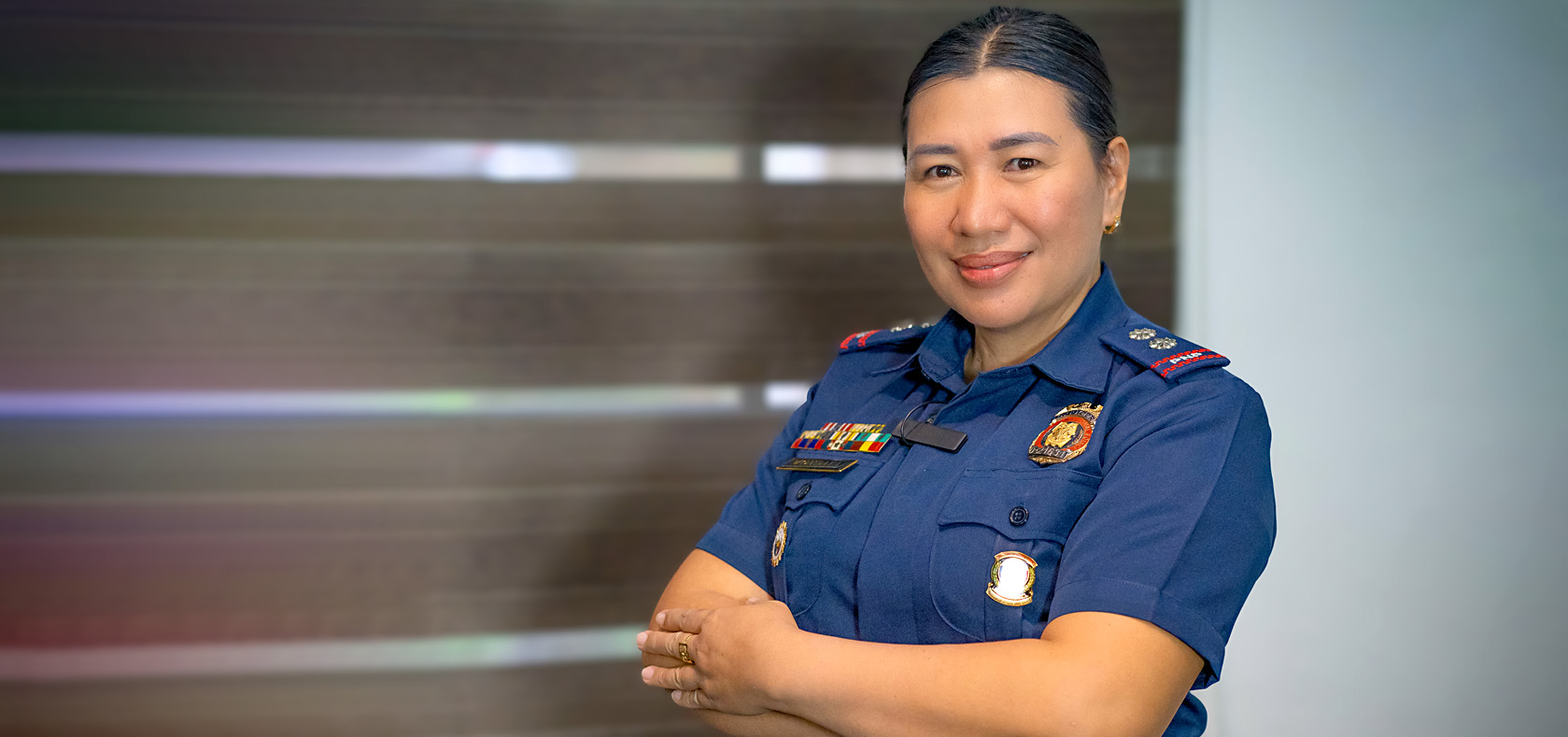In the words of Police Lieutenant Colonel Melbeth Mondaya: “Protection and education for girls is especially important because they are the key to women’s empowerment.”
Date:
Interviewed by Carol Dawonlay vda Bello

Police Lieutenant Colonel Melbeth Mondaya is Gender and Development Focal Point of the Philippine National Police Regional Office-Bangsamoro Autonomous Region. The region has long been affected by private armed groups, violent extremism and violent clan feuding. In November 2021, Mondaya participated in a workshop on women, peace and security organized by UN Women and Bangsamoro Women Commission in cooperation with the Armed Forces of the Philippines, Philippine National Police and the Office of the Presidential Adviser on the Peace Process.
The workshop was part of UN Women’s programme Empowering Women for Sustainable Peace: Preventing Violence and Promoting Social Cohesion in ASEAN, funded by the Government of Canada. ASEAN is the Assocation of Southeast Asian Nations.
Women and children are in unsafe conditions in communities affected by armed conflict. As a mother and police officer, I understand their situation because I also experienced this.
When I was still a child, my family was affected by clan feuding or what we call ‘rido’. I experienced having to flee with my family, living in one place after another to find safety. We suffered so much hardship. My parents had a hard time finding income. I was not able to go to school regularly. I read my lessons even during the times that we were fearing retaliation from the other clan. It caused me so much fear, and I cried a lot as a child. My mother had to care for the entire family, working around the clock and with very few hours of sleep.
Learning about UNSCR 1325 (United Nations Security Council Resolution on women, peace and security) through UN Women opened my eyes to realize several things. UN Women taught me that our peacekeeping programs can be effective if we increase the recruitment and training of women so they can be active responders and rescuers in the field. Women are effective field personnel; their presence and visibility already gives a calming effect to conflict-affected women and families. To ensure that we are reaching both women and men within organizations and in communities, sex-disaggregated data collection and reporting should be enforced.
My role as a police officer is to safeguard women and girls from all forms of discrimination and gender-based violence so they can have equal footing in finishing school and achieving their full potential as human beings.
I am thankful that I was able to finish college even coming from a displaced family with economic difficulties, and now (am) a police officer helping end violent conflicts and displacements in the Bangsamoro.
Strategically, I see the need for community peace dialogues with women’s voices being equally heard and taken seriously, safe spaces for women and children in evacuation sites and areas frequently affected by conflict, and gender-sensitive search and rescue operations.
Deeply, as a professional, my request is that international organizations like UN Women and the Philippine Government will continue to work together to cultivate skills for women’s rights and peace and security among police officers like myself so we can fine-tune our own programmes and activities on the ground. At a personal level, my aim is to bring hope and opportunities to the displaced, especially women and girls. Protection and education for girls is especially important because they are the key to women’s empowerment.”